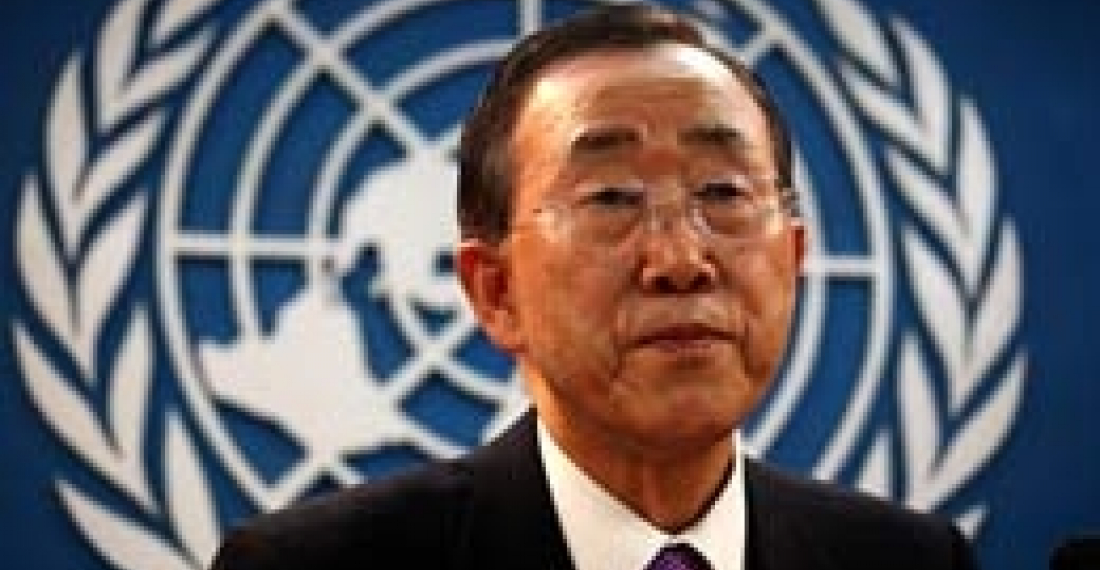UN Secretary General Ban Ki-moon hopes that tensions between Armenia and Azerbaijan over the pardoned killer of an Armenian soldier would not affect the settlement of the Nagorno-Karabakh issue, his spokesman Martin Nesirky said on Thursday.
Relations between Armenia and Azerbaijan, who have been at odds since fighting a bitter war over the mainly Armenian Nagorno-Karabakh
enclave in the early 1990s, have been aggravated by the extradition and subsequent pardoning of Ramil Safarov.
"We hope that this issue will not damage the Nagorno-Karabakh peace process and trust between the sides. There is no alternative to a
peaceful settlement of the Nagorno-Karabakh conflict," the spokesman said.
"The UN underscores the responsibility of member states to adhere to international standards and principles of rule of law in criminal
cases in order to ensure accountability and fight impunity," Nesirky said.
To recall, on August 31 the Armenian authorities adopted a decision to suspend diplomatic relations and official contacts with Hungary
after the Hungarian authorities extradited Azeri officer Ramil Safarov, who was sentenced by a Hungarian court to life in jail for killing sleeping Armenian officer Gurgen Margaryan with an axe in Budapest in 2004. Both the officers were undergoing an English language course under the NATO PfP program. The same day after Safarov's extradition, Azeri President Ilham Aliyev decreed to pardon and reward the criminal.
The Nagorno-Karabakh conflict broke out on February 28 1988 in the Azerbaijani Sumgait with massacre of Armenians as a peculiar response of Azerbaijanis to the peaceful demand of the Nagorno-Karabakh autonomous Region, part of the Azerbaijani SSR, to unite with the Armenian SSR. This resulted in other pogroms of Armenians in Baku, Kirovabad and other regions of Azerbaijan populated with Armenians. In 1991 Azerbaijan unleashed war against peaceful populations of Nagorno-Karabakh, expulsing ethnic Armenians from the territory of Azerbaijan. Dozens of thousands of peaceful residents on both parties were killed in the military actions, and hundreds of thousands were left homeless and have become refugees. In 1994 in Bishkek in mediation of the OSCE MG, the NKR, Azerbaijan and Armenia signed a Protocol on Ceasefire that is observed more or less so far.
UN Secretary General: "Tensions between Armenia and Azerbaijan over the pardoned killer of an Armenian soldier would not affect the settlement of the Nagorno-Karabakh issue"
UN Secretary General: "Tensions between Armenia and Azerbaijan over the pardoned killer of an Armenian soldier would not affect the settlement of the Nagorno-Karabakh issue"







